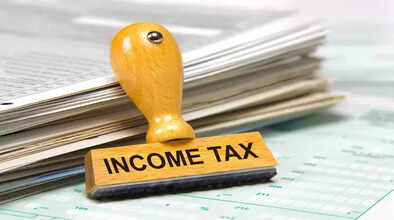Income Tax Saving Tips: Are you a salaried person and want to save income tax? These 5 powerful methods will do wonders...understand quickly

Saving income tax has always been a big challenge for those who work. After meeting all the expenses from their limited salary, the salaried person has to plan for savings, investment, and retirement. Here are the ways through which you can easily save your income tax.
5 Best Tax Savings for Salaried: The last date for filing ITR for the financial year 2023-2024 is 31 July 2024. Everyone from salaried to businessmen is planning it. According to the income tax slab, if you have chosen the old tax regime, then you will not have to pay any tax on income up to Rs 5 lakh, whereas if you have chosen the new tax regime, then there is no tax on income up to Rs 7 lakh. In such a situation, be it a salaried person or a businessman, everyone is trying to save income tax by trying their methods.
Talking about the working people, tax saving has always been a challenge for them. They have to plan their monthly expenses as well as savings, investment, and retirement. In such a situation, understanding your needs, here we are going to tell you those methods for working people through which you can easily save your income tax.
If you have taken a home loan, then you can take tax exemption on its principal amount under 80C. Apart from this, you can also take an exemption on the interest of the home loan. You can take this exemption under section 24 (b) of Income Tax. According to the Income Tax rules, tax exemption can be claimed on interest up to Rs 2 lakh. However, this tax exemption will be available only if the property is 'Self-Occupied'.
One of the simplest tax-saving options for salaried people is the Employee Provident Fund (EPF). It provides tax exemption of up to Rs 1.5 lakh under Section 80C of the Income Tax Act. Interest of up to Rs 2.5 lakh annually received in the PF account is tax-free.
House Rent Allowance. HRA is an allowance that is given to employees to pay their house rent. Your company also pays HRA along with your salary. Tax exemption on HRA can be availed under Section 10(13A) of the Income Tax Act, subject to certain limits.
1. Tax exemption on total income in the form of HRA.
2. Up to 50% of the basic salary for a person living in a metropolis, up to 40% of the basic salary for people living in small cities
3. On paying 10% of the total annual income as house rent
After calculating these three facts, the lowest amount that comes out can be used for tax exemption from HRA. Apart from this, tax on income earned in the form of HRA can be saved only by a salaried person whose salary includes HRA and who lives in a rented house. To get this exemption, you have to provide a tenancy agreement or house rent receipt.
Health Insurance Policy
Under Section 80D of the Income Tax Act, if the taxpayer pays the premium of health insurance, then he gets a tax exemption. If you have taken a health insurance policy for yourself, your spouse, children, and parents, then you can claim tax on premiums up to Rs 25,000. In this case, the age of the parents should be less than 60 years. If your parents are senior citizens, then the tax exemption limit will be Rs 50,000.
Tuition Fees
You can get tax exemption on the tuition fee part of the school/college fees you pay for your children's education. Under clause 17 of Section 80(C) of Income Tax, there is a provision for income tax exemption for parents paying tuition fees or school fees. This exemption can be availed on the tuition fees of two children. But to get this exemption, you will have to submit an admission certificate and fee receipts from the institution.
Follow our Whatsapp Channel for latest update

